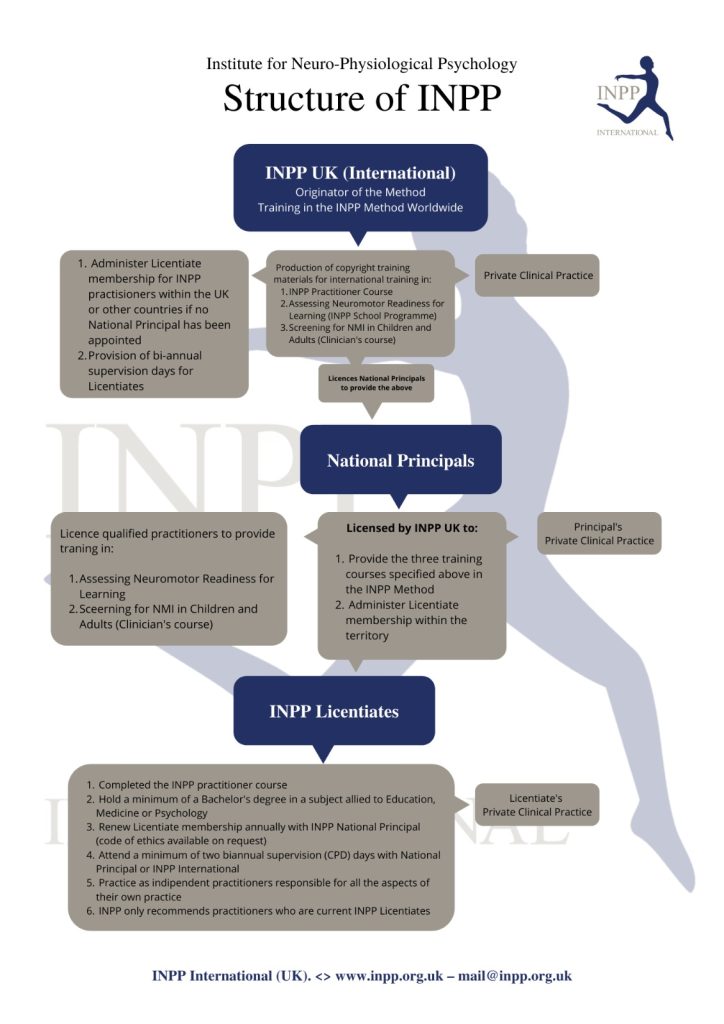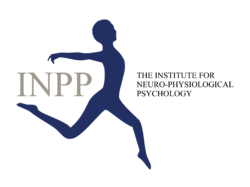INPP Chester was established in 1975 with the aims of:
1. Researching the role of immaturity in the functioning of the central nervous system (CNS) in children presenting with specific learning difficulties, under-achievement or behavioural problems and adults suffering from agoraphobia and panic disorder.
2. Developing reliable and replicable methods of assessment to identify signs of immaturity in the functioning of the CNS.
3. Developing effective physical remedial programmes.
The INPP method is the product of the above.
Training in the INPP method
Training in the INPP method is provided by INPP in Chester and licensed providers of training (National Principals) in 14 countries. Minimum qualifications for entry to the INPP practitioner course and content of training in the method, has been standardised in these countries and has been recognised by a university in the United Kingdom as being equivalent to 60 post graduate credits towards a post graduate qualification.
INPP Chester and National Principals provide:
1. Assessment and remediation of difficulties associated with neuromotor immaturity in private practice.
2. Provision of training in Assessing Neuromotor Readiness for Learning. The INPP Developmental Screening Test and School Intervention Programme (the INPP programme for schools).
3. Provision of training in the INPP practitioner course.
4. Provision of training to clinicians and health practitioners in Neuromotor Immaturity in Children and Adults. The INPP Screening Test for Clinicians and Health Practitioners.
5. Continuing Professional Development (CPD) days for INPP trained practitioners.
Licentiates of INPP (Benefits & Obbligations)
Licentiates of INPP are practitioners of the INPP method who meet the following criteria:
1. Have successfully completed the INPP practitioner course.
2. Attended two days of CPD within 18 months of qualifying through the INPP practitioner course.
3. Agree to practise under a code of ethics.
4. Attend 2 days of CPD bi-annually.
Licentiate membership is renewed annually.

Disclaimer: Licentiates practise as independent private practitioners and are solely responsible for their own professional liability insurance and all matters related to their practice.

